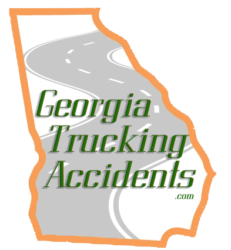Georgia Truck Accidents Caused By Equipment Failure
Truck Equipment Failure Accident Lawyers in Georgia
Equipment failure on a tractor-trailer or other large truck can be devastating. In 2015, the National Transportation Safety Board (NTDB) issued a list of its Ten Most Wanted Safety Measures. Prominently displayed on that list was an increase in commercial truck safety. The NTSB called for increased safety measures based on its observation that the number of deaths and injuries caused by large truck crashes has increased. The NTSB called on regulators to stiffen rules relating to the safe operation of large trucks. Additionally, the NTSB called upon company owners and even drivers themselves to do more to increase safety on the roads. The NTSB believes that trucking companies and their drivers should bear more responsibility for safety and do more than the bare minimum regulators currently require.
Equipment failure should not be a frequent contributor to truck crashes. However, equipment failure is one of the primary causes of truck crashes. The National Highway Traffic Safety Administration (NHTSA) delineated four categories of equipment failure that is likely to cause a crash. They are:
- Tires or wheel failed because of wear;
- Braking failure or degradation;
- System failure such steering, engine, or transmission; and
- Other or unknown failures.
Tractor trailer drivers and other large truck operators have an obligation to check these systems thoroughly, and others, before and after travel.
The Federal Motor Carrier Safety Administration (FMCSA) issued numerous regulations pertaining to pre-trip inspection designed to avoid vehicle and system malfunction. The FMCSA’s regulations require the driver to maintain a log book documenting inspections, and the driver must document any problems with the systems and accessories that the driver must inspect. The driver must sign the report indicating that the review was completed and problems were documented. Corrective action must be taken before the truck may continue on its journey. Also, a big rig driver must review inspection report from the previous trip. It is important to know that trucks changing out equipment at intermodal stations are also subject to inspection in the same manner as required by the driver.
Each system or accessory the driver must examine relates to the safe operation of the large truck. The driver must inspect:
- Air brakes on tractor and the brakes on the trailer,
- Parking brake,
- Steering and suspension systems,
- Running lights and reflectors,
- Tires, including tread wear and air pressure,
- Horn,
- Wheels and rims of tractor and trailer,
- Headlights,
- Windshield wipers,
- Rear-view mirrors, and
- Emergency equipment.
Tractor trailers are also subject to periodic inspection as well as the daily inspections. Periodic inspections may be performed by Georgia DOT and satisfy federal requirements.
Notwithstanding all of the safety checks required by the government, large trucks still experience equipment failure. One of the most common mechanical failures is a blown out tire. Large trucks enjoy some redundancy with regard to tires with one notable exception: there are only single tires in the front of the rig. A blowout to one of those two tires can cause the entire rig to lose control. Trucks can sideswipe another vehicle after a blowout or roll depending on the speed at which the truck is traveling when the blowout occurs.
Understanding the safety regulations truck drivers must follow provides truck crash attorneys an advantage. They know what documents they should ask for and where to look for evidence that the driver or trucking company knew about the potential safety hazard and callously disregarded the danger.
Put Our Law Firm’s Over 33 Years Of Legal Experience To Work For Your Case!
The time you have to legally receive compensation is limited.
Sources:
https://crashstats.nhtsa.dot.gov/Api/Public/ViewPublication/811059
https://www.ecfr.gov/cgi-bin/retrieveECFR?gp=1&ty=HTML&h=L&mc=true&=PART&n=pt49.5.396#se49.5.396_117

